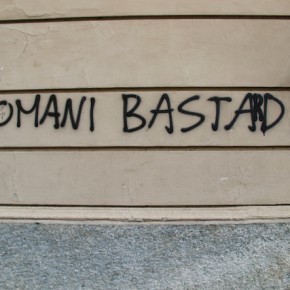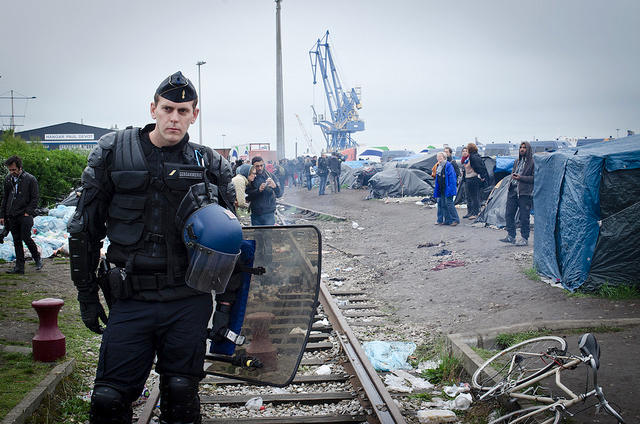We are tired of the “hypocrisy argument”. From the response of the left to the Charlie Hebdo terrorist attacks to the dumbing down of public discourse on domestic surveillance, too many progressives appeal to arguments about personal consistency, and avoid the harder questions about policy, ethics, race and media freedom.
From the deepest corners of Internet chatter to the pens of Noam Chomsky and Glenn Greenwald, the verdict is clear. Anyone looking for sanity in the wake of the killings of magazine workers in Paris are hypocrites.
The arguments are as predictable as they are pedestrian: The French political establishment cries about free speech when these workers are killed, but an anti-Semitic comedian is arrested for making a joke. Hypocrisy. Those leaders who marched in defiance are also guilty of violence against journalists. Hypocrisy. The magazine’s mourners aren’t crying about France’s imperial past. So, hypocrisy.
Fair enough. The left is rightly concerned about the growth of Islamophobia across Europe and the United States. In addition to providing a platform for policies such as the mass surveillance of Muslim populations, the growth of Islamophobia has also provided inspiration for numerous acts of vandalism and personal violence. With the likes of Benjamin Netanyahu marching in Paris and the smug anti-Muslim rhetoric of Bill Maher, it seems natural to find a way not to jump on the “I am Charlie Hebdo” bandwagon, with the perfunctory disclaimer that Islamic terrorism is still bad.
Hence, claiming the hypocrisy of the angry becomes the convenient too. What’s worse is that this charge alone becomes a stand-in for a constructive response from the left about how to respond to this crisis. Of course the rise of European nationalism is to be feared, and we’re well aware of the othering of immigrants in Europe, particular those from the Middle East and South Asia. But we’re not going to use post-modernist obfuscation to explain away the violence of Islamic State, the House of Saud or Al-Qaeda, all forces that threaten and kill Muslims with astonishing regularity and distinct brutality.
The left should be fighting Islamophobia and calling out policies that target Muslims. But, the lazy focus on hypocrisy and the downplaying of the specific horrors inflicted by groups like Al-Qaeda cheapen and distract from this vital battle. We are stuck with and endless loop of “yeah but they do it too”, while none of the big issues get the focus they need. It can be a fun way to score a point, but no way to actually generate smart and cohesive responses to all of the crises represented in the Charlie Hebdo attacks.

The other major problem with the hypocrisy argument is that it often ends up affirming the underlying values that the left is fighting against. James Hoff, an English professor at the Borough of Manhattan Community College, says, “Sometimes by simply pointing out hypocrisy without further analysis, we can too easily find ourselves reproducing the positions of our opponents. For instance, when the police turned their backs on Mayor de Blasio in protest, many liberals and leftists complained that the police were being hypocritical. After all, ‘How can you demand that others respect your authority, when you refuse to respect the authority of your superiors?’ they said.”
This, of course, has many rhetorical problems, including accepting the ideal of obedience to power as some sort of ideal. But, most importantly, it distracts from the issue at hand. In short, resting on claims of hypocrisy is too often a cop-out. “It takes the attention away from the difficult questions of the given argument and replaces it with easy observations of personal failure,” Hoff said.
To put our view into context, consider the following: We are both media workers, and in our work there’s something to offend quite a few people, but we hope those things aren’t trotted out online when our families weep over our graves because one jab, one line or one interview went a little bit too far.
We are not Charlie Hebdo. But we are in solidarity with its workers, and any media workers regardless of their nationality or the political inclinations of their employers. That’s something called international solidarity, which is too often lacking on the left. We hope we can at least avoid any and all hypocrisy on this score.
Hence, we owe it to the ideal of international solidarity to come up with a substantive response about how to deal with Islamic terrorism and far-right nationalism. Our starting point on combating that is clear: We need a strong economic left that embraces transnational cooperation, that builds civil society and creates jobs, not only that cuts people off from society, leaving them susceptible to toxic ideologies.
If anyone has a counter-argument to that course of action, we’d love to hear it. As long as it’s something more than an accusation of hypocrisy.
Photographs courtesy of Joel Schalit.






1 comment